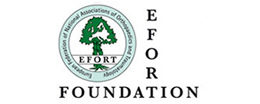Horizon 2020 is the European Union’s proposed new research and innovation programme, and determines EU funding in research and innovation. Running from 2014 to 2020, the programme aims to stimulate growth and jobs across Europe. In comparison to its predecessor the so called FP7 (Framework Programme 7), Horizon 2020 will make it easier to participate in EU funded research and innovation projects through a simplified procedure, thus slashing red tape for researchers wishing to access EU financing. Indeed, a single set of rules will now apply bringing together all EU level Research & Innovation activities and one single funding rate for all types of participants and activities. The average time to grant will also be reduced by a 100 days. Horizon 2020 will also facilitate access to funding for SMEs through the introduction of a comprehensive programme adapted to their needs.
Horizon 2020 is structured around three main pillars:
- the first pillar ‘Excellence in the science base’ targets frontier or basic research;
- the second pillar ‘Creating industrial leadership and competitive frameworks’ will support business research and innovation, and
- the third pillar on ‘Tackling societal challenges’ will focus on tackling the major challenges of our society (e.g. ageing, well-being; health, climate change etc.).
An important change indeed in Horizon 2020 is the challenge-based approach.
The programme will also be complemented by further measures to complete and further develop the European Research Area by 2014. These measures will aim at breaking down barriers to create a genuine single market for knowledge, research and innovation.
A major element in the legislative texts of Horizon 2020 is the explicit recognition – for the first time- of the burden of musculoskeletal conditions (‘over 120 million [suffer] from rheumatic and musculoskeletal conditions’) and the explicit mention that the programme should address in the relevant activities, chronic conditions, including musculoskeletal conditions. These unprecedented mentions in the official texts open the prospects to increased EU funding for Orthopaedics and Traumatology.
However, the calls under Horizon 2020 have a more horizontal and integrated approach on research projects, avoiding to mention specific disease area or research topic as it was done under FP7. This different approach broadens the scope of the calls as well as encourages cross-sector research, including social implications of certain diseases, integrated care, understanding the existing relation between certain diseases, reducing inequalities, etc. Much emphasis will be put on the European added value and on the diversity of project consortia, both in terms of nationality as well as in terms of expertise.
The first calls were launched in December 2013 covering a period of two years. In health, the focus is on personalising health and care to help address the challenge of the ageing European population and the increasing burden of communicable and non-communicable diseases.
The Orthopaedic and Trauma community has an important role to play in supporting older persons to remain active and healthy. EFORT therefore encourages all researchers to find out how they can participate, find partners if necessary, and submit proposals that will bring a real benefit to patients.
- For more information about EFORT activities at the EU level, please contact: EU@efort.org
How to find information on Horizon 2020 in your country?
Network of National Contact Points
The network of National Contact Points (NCPs) is the main structure to provide guidance, practical information and assistance on all aspects of participation in Horizon 2020.
NCPs are national structures established and financed by governments of the 28 EU member states and the states associated to the framework programme. NCPs give personalised support on the spot and in applicants’ own languages. The NCP systems can vary from one country to another from highly centralised to decentralised networks, and a number of very different actors, from ministries to universities, research centres and special agencies to private consulting companies.
NCPs can provide assistance with:
- Guidance on choosing relevant H2020 topics and types of action
- Advice on administrative procedures and contractual issues
- Training and assistance on proposal writing
- Distribution of documentation (forms, guidelines, manuals etc.)
- Assistance in partner search
In order to find the contact details of your Horizon 2020 National Contact Point or those of your potential partner’s country, you need to consult the Network of National Contact Points (NCPs) webpage where you can choose your country and your thematic area (e.g. ‘health’).
Information Session Days on Horizon 2020
NCPs often organise information sessions on Horizon 2020. Some countries have already held such sessions in the past months.
Interested project partners should get in touch with their NCPs in countries in order to find out when info sessions on Horizon 2020 will be held in 2014.
Of interest for all health projects, the European Commission held in Brussels, on 23 November 2013, a specific info session on Horizon 2020 and health named: Horizon 2020 Health open Info Days.
All presentations and video recording are now online. This is a great resource in order to understand how to be successful in applying to Horizon 2020 calls.
How to find partners for Horizon 2020?
There are a number of partner search services provided by NCPs, CORDIS and other entities. Look for the services that also provide advice on creating your profile and apply quality controls to their database.
Several thematic NCP Networks provide partner search facilities with details on partner profiles and active partnership requests:
- CORDIS Partner Service: CORDIS is the European Commission’s primary public repository and portal to disseminate information on all EU-funded research projects and their results in the broadest sense – one of the largest databases of partner profiles (self-registered profiles).
More information
- Idealist Partner Search: Developed by the ICT NCPs network, but the partner profiles are not limited only to ICT. The service includes advice on creating your profile by your local NCP and there is a quality control of all the published data.
More information
- Partner Search of Nanosciences and nanotechnologies, Materials and new Production technologies (NMP): The NMP TeAm Partner Search Facility has been established by the network on NMP NCPs in order to offer best support to its clients. This web service is strictly focused on the open calls for proposals of the key enabling technologies Nanotechnologies, Advanced Materials, Biotechnology and Advanced Manufacturing and Processing of Horizon 2020 and related actions like FET open and ERA-NETs like SIINN and M-ERA.NET
More information
- Fit for Health: Developed by the Fit for Health network in close cooperation with the Health-NCPs. The quality checked database contains expertise profiles of researchers and SMEs acting in the Health / Life sciences sector. The service includes partner search activities advice on all aspects related to a research project, starting with help in first orientation and strategy development to proposal preparation, implementation, exploitation and promotion.
More information
- IMI Partner Search: Recent partner search service provided by the Innovative Medicines Initiative Joint Undertaking (IMI JU) for organisations interested in the development of new medicines. IMI supports collaborative research projects and builds networks of industrial and academic experts to boost pharmaceutical innovation. There are also opportunities for SMEs, such as innovative biotech enterprises.
More information
- Enterprise Europe Network Cooperation Opportunities Database: The Enterprise Europe Network (EEN) publishes an extensive number of innovation and technology profiles from international companies and research organisations to help identify suitable partners for bilateral business, innovation and technology cooperation.
The database has the following types of profiles:
– Research and technology offers to further develop an existing technology
– Research and technology requests to complement a product in the development stages
– R&D partner searches to participate in funded projects
The EEN database is updated with new profiles on a weekly basis. All profiles are published anonymously. Express your interest in collaboration by filling in and sending the Expression of Interest form to your local EEN office, who will establish the contact. The database is also a simple way of following the development of technologies and trends in your area.
More information
The recent launch of Horizon 2020 renders many interesting opportunities for research related to orthopedics. A short list of calls that may be of interest is provided below. In order to access the full details of the call (specific challenge, scope, expected impact, type of action), please click on the links provided under each calls or go to http://ec.europa.eu/research/participants/portal4/desktop/en/opportunities/h2020/master_calls.html.
Please also note that this is not, nor is it intended to be, a complete list of all calls that would be relevant to the individual researcher. In order to perform a search of calls that may be of interest please go to: http://ec.europa.eu/research/participants/portal4/desktop/en/opportunities/h2020/master_calls.html. A search engine is available where it is possible to enter keywords of interest.
In addition, the Innovative Medicines Initiative (IMI) has published calls that may also be of interest. IMI is Europe’s largest public-private initiative aiming to speed up the development of better and safer medicines for patients. IMI supports collaborative research projects and builds networks of industrial and academic experts in order to boost pharmaceutical innovation in Europe. IMI is a joint undertaking between the European Union and the pharmaceutical industry association EFPIA. In particular in the IMI 11th Call 2013, topic 1 (OSTEOARTHRITIS, see pages. 10-22), topic 3 (BIOMARKER FOR PERSONALISED TUMOUR THERAPY, see pages. 44-52), and topic 6 (COMBATTING ANTIBIOTIC RESISTANCE), see pages. 78-114) may be of interest.
More information
- Snapshot of Relevant Calls under H2020 (PDF document, 294kb, 7 pages) – This short list was developed by Professor Lars Lidgren and Dr. Ann Alriksson-Schmidt on behalf of EFORT.
- For further information go to: http://www.imi.europa.eu/content/stage-1-11
- For any questions on Horizon 2020, contact: EU@efort.org
Find relevant articles and oter resources about orthopedics & traumatology in Horizon 2020
- European musculoskeletal health and mobility in Horizon 2020 (PDF document, 3 pages, 113kb)
Authors: L. Lidgren, E. Gomez-Barrena, G. N. Duda, W. Puhl, A. Carr.
Source: Bone Joint Research Editorial March 2014;3:48-50. - Horizon 2020 integrates research and innovation
Source: 14th Congress Daily News Issue 1 from Wednesday 5 June 2013 - European Parliament ITRE Committee vote paves the way for the inclusion of musculoskeletal diseases in the future EU Research Framework Programme, Horizon 2020 (PDF document, 2 pages, 513kb)
Source: EFORT Head Office, December 2011


